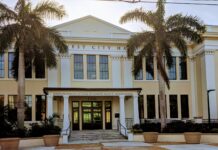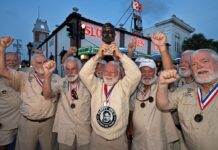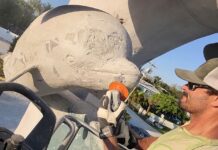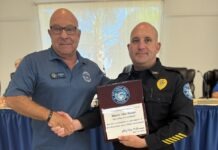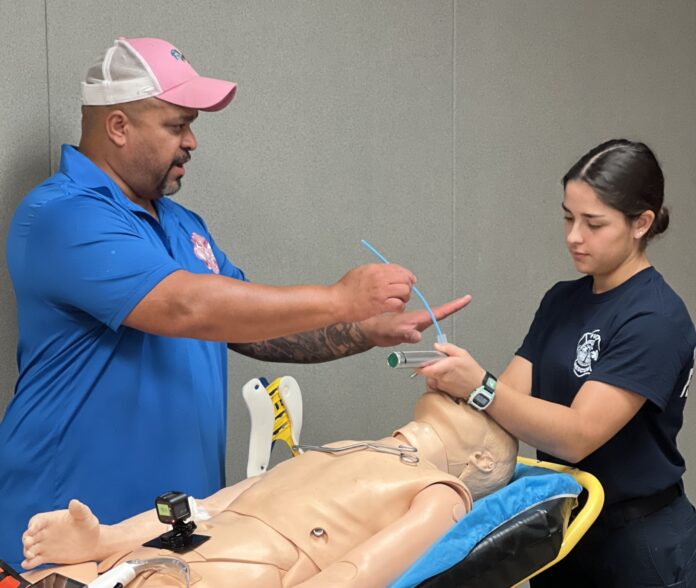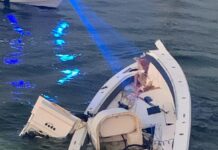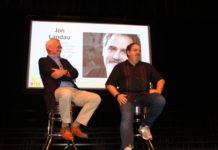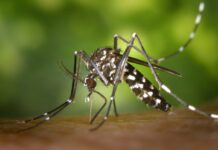For soon-to-be paramedics across the Florida Keys, an educational experience last week afforded a chance for real-world application, without the pressure of a life on the line.
From Key Largo to Key West, current EMTs in training for the upgraded certification, normally restricted to practice on dummies and simulated training tools, had the opportunity to hone their skills with a cadaver lab on Nov. 15.
It’s a chance that instructor and current Marathon Fire Rescue Capt. Joe Forcine said is “almost unheard of” before trainees enter the field under the supervision of other paramedics. Nonetheless, it’s a practice he hopes can continue for future generations of paramedics, even with hundreds of trainees already under his belt.
Working under the guidance of Forcine and instructor Carlos Tavarez through Southeastern Medical Academy, trainees made their way through skills and demonstrations, from less invasive procedures such as intubations all the way to chest tube placements, field amputations and even a surgical cricothyrotomy – that’s making an incision through a small membrane in the throat to place a tube and establish an emergency airway for a patient during life-threatening situations.

It’s techniques like these, Forcine said, that make it so crucial to see skills applied on true human anatomy. The labs are also why the willingness of others to donate their bodies to these purposes can help save lives.
In the case of the cricothyrotomy, the target area of incision may be around the width of a pen. “Cut too high, and the patient may never speak again,” he said. “Cut too low, and the hole may never heal.”
Following an initial session for trainees, current paramedics joined the classes later in the week for continuing education and practice opportunities.
Editor’s Note: Out of respect for the deceased, the Weekly did not photograph trainees’ practice with the cadaver.
